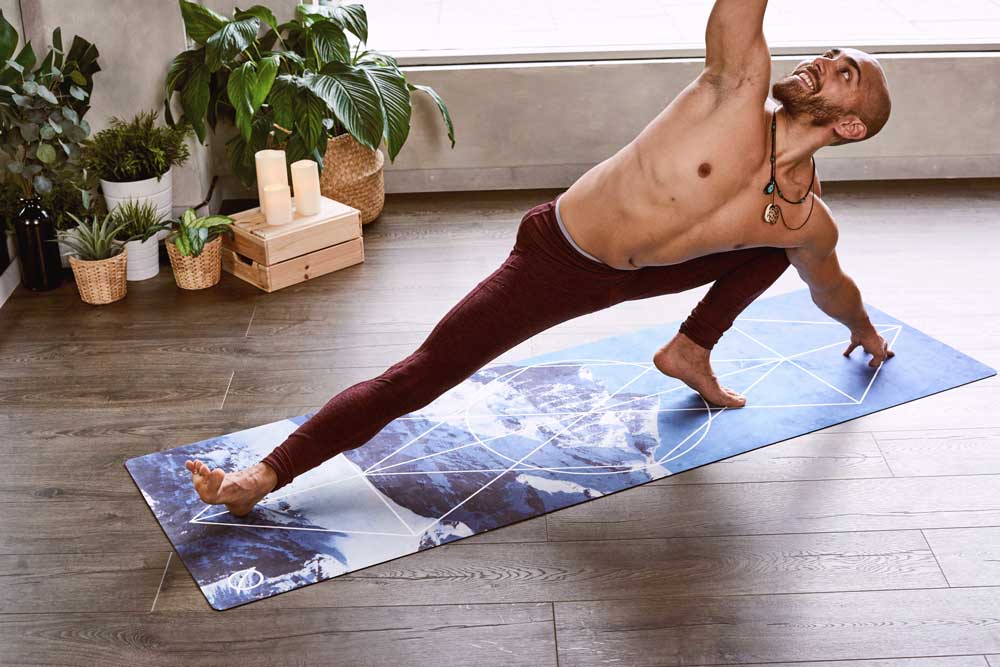Mindfulness for athletes

Physical training's just part of the performance process - more and more studies are demonstrating the power of mindfulness. With increasing numbers of elite athletes embracing it daily – can you afford to ignore this free performance gain?
Mindfulness - what is it?
Mindfulness is about being self-aware. It’s about drowning out the noise of the world and focusing within and paying attention to your breathing, thoughts and feelings and being wholly present in the moment.
It’s often confused with meditation, which is the large umbrella term used to describe the practice of reaching optimal concentration and consciousness. Mindfulness is essentially a type of meditation.
Mindfulness - what's good about it?
It's not all subjective either. There is empirical evidence to show the practice of mindfulness will:
- Reduce stress, which in turn reduces cortisol (a performance wrecking ball) and improves energy, recovery rate and testosterone (which you can increase naturally with these tips)
- Increase feelings of happiness and contentment
- Reduce feelings of depression
- Improve memory
- Result in more relationship satisfaction
- Improve cognitive flexibility

Take a moment to sit and admire the view. It’ll reduce stress and increase happiness
There are a wide-range of brain-training approaches to boost sports performance, but the most promising is mindfulness.
Mindfulness for athletes – sporting benefits
While trained athletes work hard and are skilled at their sport, their ability to utilise the mind is what makes them stand out from the crowd.
Many elite athletes use mindfulness for performance, including Novak Djokovic, Michael Jordan, Laura Trott and Tom Daley. This isn’t some hocus pocus movement, it's a key part of the modern elite athlete's toolkit.
Heck, a recent study in the Journal of Health Psychology concluded that:
“Athletes who practiced mindfulness we more motivation, achieved enhanced training consistency and performed better under pressure”.
Martin Paulus, a leading researcher in brain-training for elite performance, has discovered the distinction between high performers and the rest of us resides within the medial prefrontal cortex – the part of your brain which essentially decides how strongly to react to stimulus from the outside work.

Mindfulness will help you respond to external factors automatically and with efficiency
Athletes who practice mindfulness can react to external stimulation in a more calm, collected and efficient manner. Mindfulness allows you to prepare for the unpleasant sensations that come with high performance – whether that’s self-inflicted or as a product of the competition environment.
A kayaker who capsizes in cold water will not panic at the shock but will right himself. A runner squeezing the last few miles of a marathon will recognise the pain, accept it but push on because they’re better able to separate themselves from the discomfort. A rugby player will silence the crowd and is better able to forget earlier mistakes in order to focus solely on the next passage of play.
Mindfulness has been shown to:
- Remove distractions in competition
- Help athletes stay in “the zone”
- Help manage physical discomfort
- Increase focus and decision making
- Improve communication between the mind and body, resulting in better movement patterns
- Improve enjoyment of the athlete’s sport
Mindfulness for athletes – how to do it
Just like physical training, which takes hour upon hour of practice, mindfulness also needs training. Fortunately, you can see benefits from mindfulness with just 10 minutes each day. Here’s how:
- Set a timer for 10 minutes
- Sit comfortably, wherever that is for you, and in whatever position
- Close your eyes
- Listen to your heartbeat & breathing. Take note of the in breath, the pause before the out breath and the exhale
- Focus on how your body feels
- If you mind wanders, no worries. Just bring your attention back to your breathing and heartbeat

You don’t have to sit with incense flowing up your nostrils to be mindful
Mindfulness for athletes – our conclusion
Mindfulness isn’t going to transform your performance. It’s not going to turn you overnight from a 4-hour marathon runner to a three-hour marathon runner.
But what it will do is dial in your current ability and squeeze those extra few percent (which can still have a very noticeable impact) and help you fulfil your potential. With mindful practice, you can rest assured you’re covering every base and getting the best from yourself.
Considering the gains appear to be felt even within just a few days of practice, what have you got to lose?
While we're on the subject of quick & easy performance wins...
The perfect performance diet is a wonderful thing, but it's not always possible for those of us who work and play as hard as we train and race. We created our Ultimate Daily Greens to deliver that all-important nutritional head start to every day, all in one tasty spoonful. Mix in a glass of water and make it part of your morning routine to start every day on the front foot, and all in under 30 seconds.
More performance boosting content
From the Vlog: Maranoia - what it is and how to beat it
From the Podcast: 7 things we learned from Michelin-starred marathon chef Michel Roux Jr
From the Blog
Maximise training effect – 5 mental tips to boost performance
How smiling improves performance
Cortisol and performance - managing your levels is key to high performance













